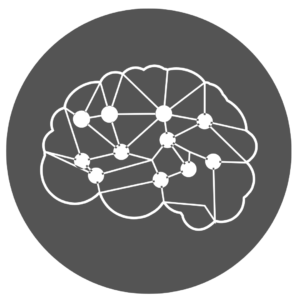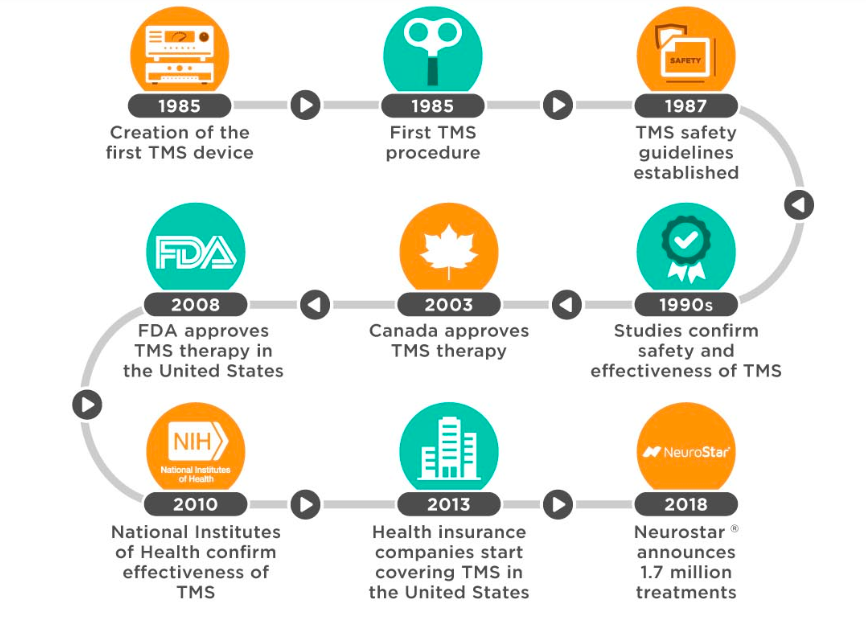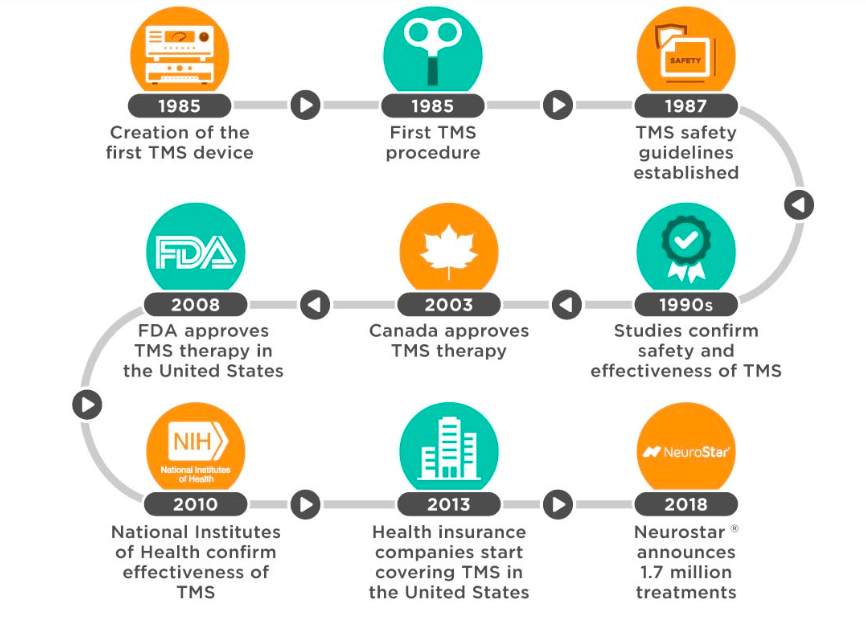On this page:
The investigation of transcranial magnetic stimulation (TMS) and its impact on the brain has been a subject of deep exploration since the 1980s. However, it wasn’t until 2008 that the FDA officially recognized TMS as a legitimate treatment for depression. Yet, the roots of TMS stretch back much further in time, tracing back to the late 1700s when researchers began studying the effects of electrical energy on the nervous system.
Over the years, the modern approach to TMS for depression has proven its effectiveness in alleviating symptoms by stimulating the brain’s prefrontal cortex. To gain a comprehensive understanding of the advantages of TMS and its minimal risks, it’s essential to delve into the historical origins of this groundbreaking depression treatment.
History of TMS
The Early Foundations of TMS (1881-1985)
In 1881, the renowned scientist Michael Faraday made a groundbreaking discovery—he could generate a magnetic field by passing electricity through a coil. This fundamental physics principle would go on to become the early foundation of TMS therapy. More than 100 years later the first TMS device was developed by Anthony Barker and his colleagues in 1985. This marked the beginning of utilizing TMS as a therapeutic tool.
TMS Therapy Gains Momentum (1990s)
The 1990s witnessed a significant uptick in research exploring the use of TMS as a treatment option for depression. By this time, 90 clinical trials and several meta-analyses had already suggested a moderate effect size for TMS in treating depression. Researchers were increasingly intrigued by its potential as a medication-free therapeutic option for treating depression.
TMS Gains FDA Approval (2008)
A pivotal moment in the history of TMS therapy occurred in 2008 when the U.S. Food and Drug Administration (FDA) granted its approval for the treatment of treatment-resistant depression. This approval provided a glimmer of hope for individuals who had not responded to traditional forms of treatment.
TMS Proves to Be Effective For Depression (2008-2010s)
Shortly after FDA approval, two significant studies confirmed the effectiveness of TMS for depression. The original study funded by Neurostar and another conducted by the National Institute of Mental Health (NIMH) both found a remarkable 14% remission rate. These findings solidified TMS as a viable and promising treatment option for those battling depression.
Deep TMS Emerges (2010s)
As the field continued to evolve, researchers explored the potential of deep TMS. This innovative technique offered more substantial benefits, with a remission rate exceeding that of traditional 8-coil TMS devices used by companies like Neurostar and Magventure. Deep TMS represented a leap forward in the efficacy of TMS therapy.
Expanding Acceptance and Coverage For TMS Treatment
With TMS rapidly gaining recognition and credibility, an increasing number of health insurance companies have started covering this revolutionary treatment. This development has made TMS more available and accessible to a wider range of individuals seeking relief from depression.
TMS History, Present, and Future
The history of TMS therapy is a testament to human ingenuity and scientific progress. From Faraday’s pioneering work in the 19th century to the modern deep TMS techniques and technology of today, Transcranial Magnetic Stimulation treatment has come a long way. Its journey from discovery to FDA approval has opened up new avenues of hope for those living with depression, offering a reliable, medication-free option in their toolbox for mental wellness.
TMS For Depression Near You in Milwaukee
If you’re interested in learning about how TMS works and how it can help with your depression or anxiety don’t hesitate to contact our office today to set up an initial consultation. Different than other drug-based treatments, TMS is a noninvasive procedure that uses a mild magnetically charged electrical current to stimulate parts of the brain that tend to be underactive in people suffering from depression or anxiety. Here at New Frontiers Psychiatric & TMS was are proud to offer this cutting-edge therapy to people in Milwaukee and nearby.


